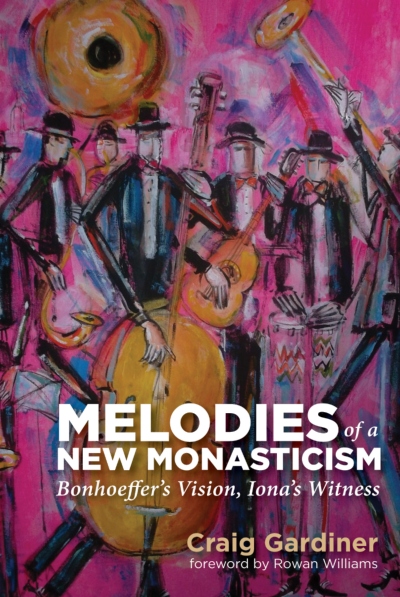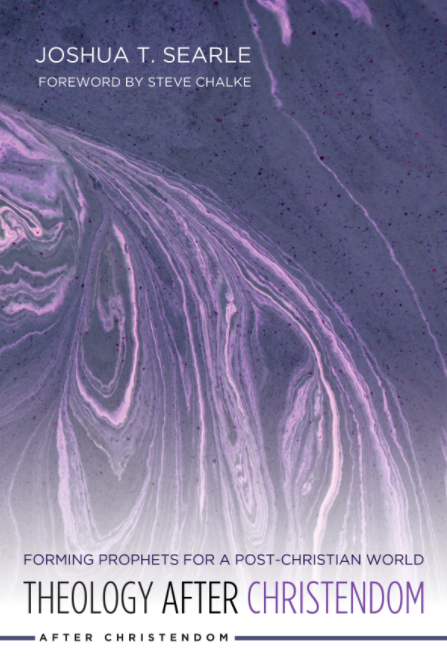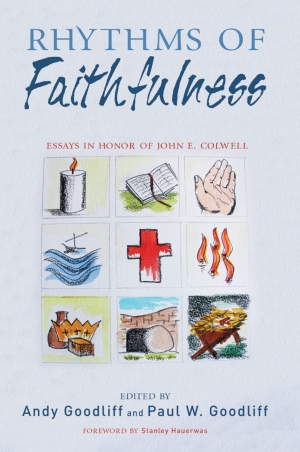A theological vision for Baptists
Three recent works begin to provide an answer that might help Baptists discover a way of being church that is true to their heritage, as well as sound new melodies for a new context. Let's make space for them, writes Andy Goodliff
 What might the future look like for Baptists? What kind of theological vision might be needed? I would argue it must be a theological vision, not just another activist fad with a biblical text slapped in front of it. It’s a question Leonard Champion, former Principal of Bristol Baptist College, asked 40 years ago in an address to the Baptist Historical Society. It’s a question I believe we are yet to answer adequately, or at least in a way that finds consensus amongst us.
What might the future look like for Baptists? What kind of theological vision might be needed? I would argue it must be a theological vision, not just another activist fad with a biblical text slapped in front of it. It’s a question Leonard Champion, former Principal of Bristol Baptist College, asked 40 years ago in an address to the Baptist Historical Society. It’s a question I believe we are yet to answer adequately, or at least in a way that finds consensus amongst us.
A small group met last week to discuss Melodies of a New Monasticism (SCM, 2018) by one of our own scholars, Craig Gardiner, tutor at South Wales Baptist College. It’s basically his PhD which he was able to write with help from the Baptist Union. Perhaps it's appropriate that having helped fund it, we should make the time to engage with the result of his concerned study.
Craig was with us as we chatted in response to his book. One of those present, who knows Craig well, said the book basically is about three of Craig’s loves: music, the theology of Dietrich Bonhoeffer and the Iona Community (of which he is a member). While it is that, it is also an argument for the renewal of the church. Lots of PhDs are often one step removed from what it is to be church at the coalface so that they end up sitting in university libraries, read only by other academics. Craig’s work offers something for the church to consider. It offers a vision of being a church community rooted in the musical metaphor of polyphony (literally the sounding of many notes at one time). It’s a vision of church that is no one note, but many notes sounding simultaneously in melodies, with one firm melody that is always sounding, known as the cantus firmus. The cantus firmus, says Craig, is Christ, to which the church melodies are always related.
This then is how Craig draws on music, but also in conversation with Bonhoeffer’s theology and a vision of community alongside the witness of the Iona Community. What follows, once he has set this up, is a rich exploration of how the church might understand its worship and witness, faith and life as a performance and participation in the music of God. It's one which offers something of a vision that should demand our attention. Craig’s engagement with Bonhoeffer follows in the footsteps of previous Baptists, like Edwin Robertson and Keith Clements, who have found Bonhoeffer a compelling voice for Christian faith. As a member of the Iona Community, he has sought to discipline his life in ways that value prayer and Bible reading, accountability for the use of money and time, and for shared action in justice and peacemaking.
 Craig’s work could be read alongside Joshua Searle’s recent book Theology After Christendom (Cascade, 2018), which explores how and why the church needs to recover a prophetic voice and a kingdom orientation, and uses the Northumbria Community as a example of what this might look like. Joshua is another one of our scholars, a tutor at Spurgeon’s College.
Craig’s work could be read alongside Joshua Searle’s recent book Theology After Christendom (Cascade, 2018), which explores how and why the church needs to recover a prophetic voice and a kingdom orientation, and uses the Northumbria Community as a example of what this might look like. Joshua is another one of our scholars, a tutor at Spurgeon’s College.
And, if not too indulgent, I might also suggest a third book, edited by myself and Paul Goodliff, Rhythms of Faithfulness (Pickwick, 2018), which uses the Order for Baptist Ministry and its daily office as a way of exploring a Baptist vision of prayer and discipleship in conversation with the theology of John Colwell.
 What might the future look like for Baptists? What kind of theological vision might be needed? In these three works there are the fragments (drawing on one of the chapters in Craig’s book) that could begin to provide an answer, that might begin to help Baptists discover a way of being church, that is true to their heritage, but sounds new melodies for a new context.
What might the future look like for Baptists? What kind of theological vision might be needed? In these three works there are the fragments (drawing on one of the chapters in Craig’s book) that could begin to provide an answer, that might begin to help Baptists discover a way of being church, that is true to their heritage, but sounds new melodies for a new context.
Common to all three is the importance of a community rooted in a discipline of prayer and Bible reading, that values highly accountability, humility, and (again, following Craig) is polyphonic, giving space for different melodies; with each being centred, rooted and nourished by Christ.
One response made to Leonard Champion’s address 40 years ago was a little book written by a small group of Baptists and published in 1981 called A Call To Mind. It was an argument that if Baptists were going to find a vision for their life, they would need to engage their mind, do some theology, and perhaps, if only for a little while, take their foot off the impulse to constant activism, which quickly becomes faddism.
So ministers (and anyone else with a passion for the renewal of the church), whether you are local, regional, or national here’s an invitation: make some space in your diary, get a copy of one, two or all three books mentioned, read them, digest them, start a conversation in your church, or association or perhaps even the Baptist Union Council, and see if there is something of a vision, a theological vision, that might offer a way ahead for Baptists in these days.
The Revd Andy Goodliff, minister of Belle Vue Baptist Church in Southend, Essex
Do you have a view? Share your thoughts via our letters' page.
Baptist Times, 17/06/2019